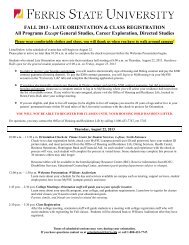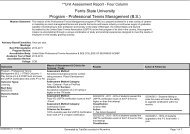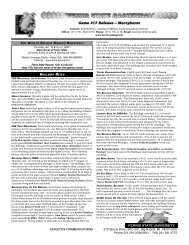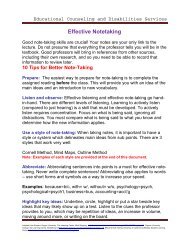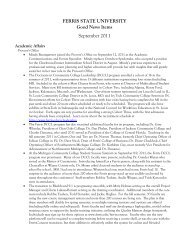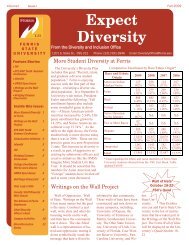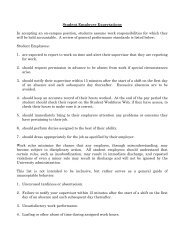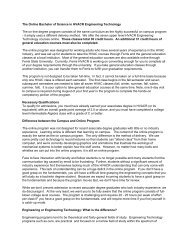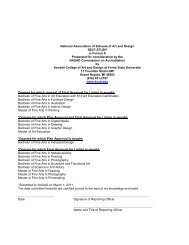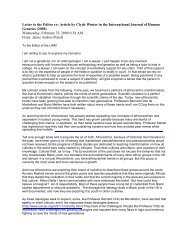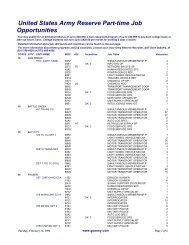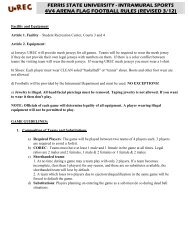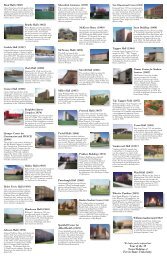Daniel Gasman - Ferris State University
Daniel Gasman - Ferris State University
Daniel Gasman - Ferris State University
Create successful ePaper yourself
Turn your PDF publications into a flip-book with our unique Google optimized e-Paper software.
science, as courageously insisting that human striving is mortal, that its efforts end in the grave; yet such<br />
reasoning, cannot, he thought, overcome the vital desire for life, for transcendence,’ so that reason and<br />
life are fundamentally at odds with each other. Richards thus proclaims that his ‘overarching argument<br />
will be that Haeckel’s science and his legacy for modern evolutionary theory display the features they do<br />
because of his tragic sense of life.’ 11<br />
The trouble with this exegesis – apart from Richards’ obvious failure to define exactly what<br />
transcendence might have actually signified for both writers – is the fact that Unamuno for the most part<br />
conceived his book as an attack on the scientific Monism of Haeckel, which he correctly understood to be<br />
12<br />
the implacable enemy of Christian transcendence. In The Tragic Sense of Life – and this is not<br />
mentioned by Richards – Unamuno denounced Haeckel 13 in the strongest possible language, and he<br />
decried Haeckel’s Monism as a faulty, unsatisfying, and materialistic philosophy because it denied the<br />
immortality of the soul: ‘Every monist system will always seem materialist,’ hence deficient, Unamuno<br />
declared. Rather, ‘only dualist systems preserve the immortality of the soul, only those systems which<br />
teach that human consciousness is something substantially distinct and different from other<br />
manifestations of phenomena.’ 14 Therefore, ‘monist tricks are of no use to us. We want the substance, not<br />
the shadow of eternity!’ 15<br />
It is anybody’s guess how this explanation by Unamuno of the dualistic<br />
meaning of transcendence, his anguished evocation of the tragic sense of life, and his unconditional<br />
rejection of scientific Monism and pantheism, can be reconciled with Richards’ account of Haeckel’s<br />
quest for transcendence that runs parallel to the religious devotion of the Spanish philosopher.<br />
11 Richards, Tragic Sense of Life, 10, n.31. In his biography of Haeckel, Richards confuses Haeckel’s experience of<br />
tragedy i.e., the unexpected and premature death of his first wife, with a tragic sense of life, an outlook on life<br />
which Haeckel did not subscribe to. Nor can it be shown that any of Haeckel’s scientific theories were influenced<br />
by a tragic sense of life which Richards incorrectly has suggested as a determining theme in Haeckel’s work.<br />
12 Unamuno published his book early in the twentieth century, at a time when Haeckel’s monism had achieved<br />
overwhelming prestige symbolized by the famous International Monist Congress held in Hamburg in 1911.<br />
13 Unamuno was hardly complimentary towards Haeckel: ‘There is no point in talking of the indecencies of Haeckel,<br />
that master of incomprehension;’ ‘[Haeckel] harbor[s] the pretention of disdaining theology [and] has succeeded<br />
[only] in dissipating the enigmas of nature.’ Unamuno, Tragic Sense of Life, Princeton: Princeton <strong>University</strong> Press,<br />
1972, 106, 258.<br />
14 Ibid, 89-90.<br />
15 Ibid, 53.<br />
7



